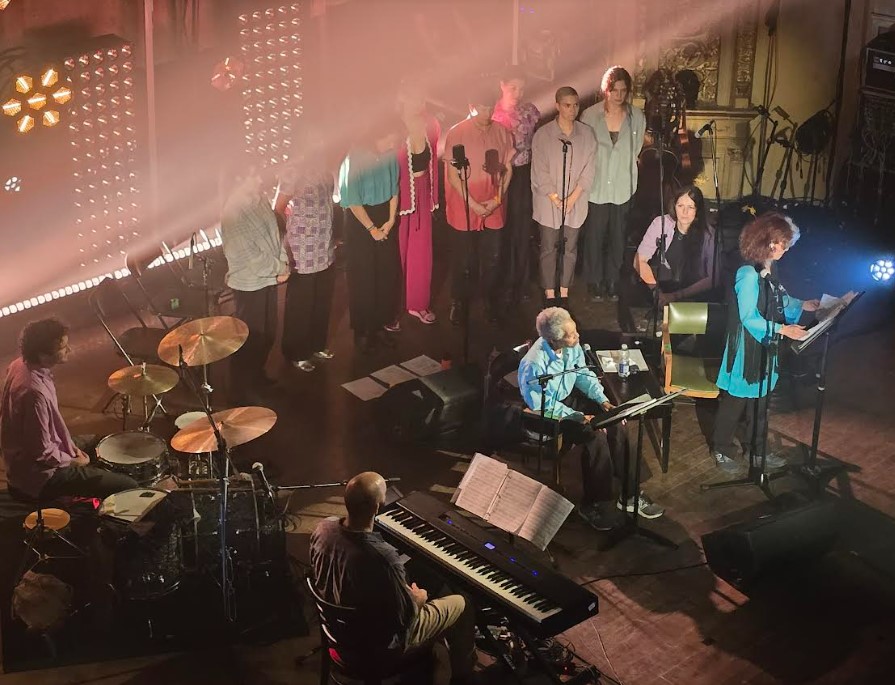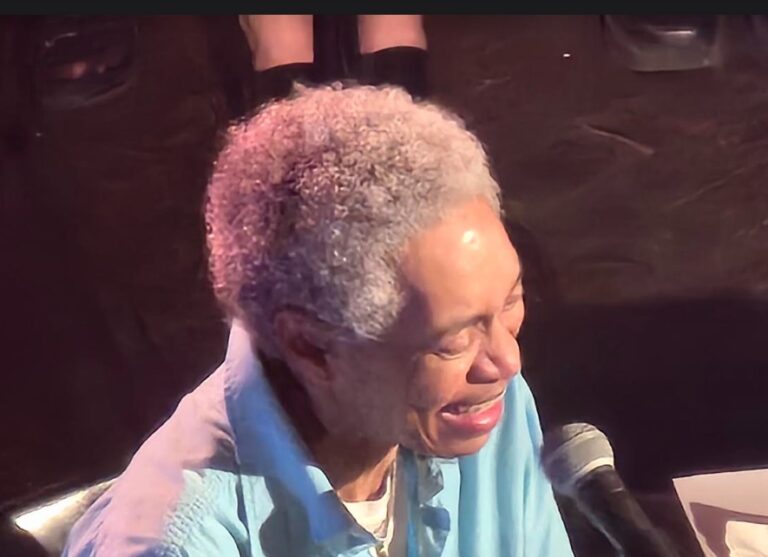Beverly Glenn-Copeland enjoyed success in her twilight years. The major success of a documentary film, Keyboard Fantasies: The Beverly Glenn-Copeland Story, had the effect of inflating the coolness and propelling the career of this non-binary octogenarian, a trans man with no apparent gender, whose personality exudes grace and goodness.
Beverly Glenn-Copeland’s biographical profile indicates that her African-American father could play the great romantic works on the piano, and that her mother knew a vast repertoire of gospel songs.
This astonishing artist was one of the first Afro-descendant students to come from the USA to study music at McGill University, at the turn of the 60s.
What we heard at the Rialto on Thursday evening perfectly illustrates this balance between European classical heritage and Afro-American culture: her contralto or tenor voice bears witness to classical training, but is also imbued with gospel, reminiscent of Afro-descendant classical singers singing the sacred songs of American gospel.
Accompanied by his lifelong companion, singer-songwriter Elizabeth, Beverly performed to a packed house, featuring a seasoned choir, keyboards and light percussion.
In front of an attentive audience, admiring if not dazzled by this experience, the Glenn-Copeland couple offered a retrospective program based on beautiful folk or gospel melodies, songs arranged for several voices.
Beverly Glenn-Copeland was welcomed as a pioneer of his own composite identity, but also as a new-age composer before that label existed, an iconoclastic designer who even created constituent materials of techno, taken up by its founding fathers – Juan Atkins, Kevin Saunderson, Derrick May.
On Thursday evening at the Rialto, there was no question of this contribution, but rather a concert focusing on the choral repertoire of Beverly and Elizabeth Glenn-Copeland, with a few percussive returns to the African legacy.
Really nothing memorable compositionally, but a very touching, warm, comforting and hopeful evening for the humans of the LGBTQ+ community. And for all of us, too.

























